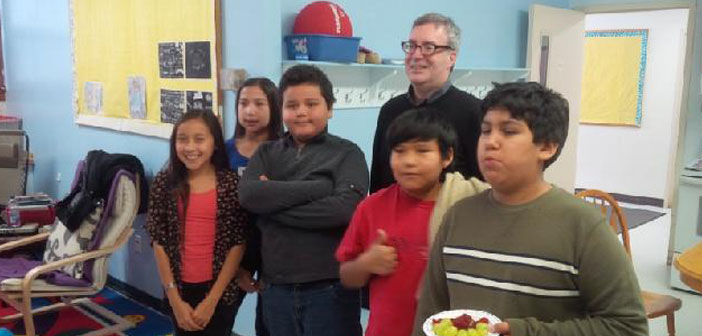Anishinaabek have a unique relationship with Canada
To the Expositor:
Re: “Robbing Peter to pay Paul”
Gchi-miigwech to Chief Shining Turtle for his somewhat muddled clarification of the Canadian Government’s protracted ill treatment of the Anishinaabek Nation (‘Robbing Peter to pay Paul,’ November 19, Page 4), and for the disclosure of top secret documents which he is privy to by virtue of his esteemed position as ‘Chief of the Whitefish River First Nation.’ But these flawed and shocking federal funding escalator formulas come as no surprise to our people and perhaps this is why he addresses his “non-aboriginal relations” with this sermon—or perhaps this noise making is rather because Whitefish River’s official election period starts November 24, with the elections for chief and council 79 days hence (February 11, 2015).
Good government is about transparency and accountability to the electorate, and these are sorely lacking in this country, as we see rampant corruption that continues to go unchecked at the highest levels of government. That we, as Canadians, should find no surprise in this is a rather stark indication of the creeping malaise contributing to the dark forces at hand on the world stage. And this same theme repeats itself around the globe. The right to vote comes with an unwritten manual to actively engage, question, and challenge a ruling government to prod it along a path more equitable and just; in the absence of this a government is free to do as it pleases. Terrorism is reactionary—to a government or country and the complacency of its people. However unjust their means, it is this very complacency which fuels this fire. And we all have our hands in this to some degree, and to think that we are mere bystanders in this is to hand the steering wheel over to some stranger.
The Anishinaabek have a unique relationship with the Canadian Government. Our ancestors entered into contracts with the early European settlers to our homeland, solemn agreements known as ‘Treaties’: binding legal instruments of negotiation between sovereign peoples, governed by international law and whose duty to uphold and enforce now resides with our present day government—Canada’s and our First Nations’ alike. But somewhere along the way this relationship became tarnished and foreign forces had conspired against our people and those treaties were ignored; our children were stolen, along with the land, and we became wards of the state. With the implementation of the ‘Indian Act’ in 1876, discriminatory provisions made it illegal for our people to leave their ‘Reservations’ without permission, and it was not until 1960 that we were even allowed to vote. We stand in the way of industries and large corporations hungry for the land and resources we have at our disposal by way of our birthright—a sacred responsibility bequeathed to us by the Creator, but not unlike any other sovereign people would have in their own homelands. It should also come as no surprise that these corporations play the government like puppets and that compromising ethical, moral, and legal obligations are all part of the game.
First Nations’ Land Claims are something of a misnomer, as one Atikameksheng Elder pointed out: “This is our home, if anything it is a claim of Canada against us…” There are many First Nations that have gone through and are in the throes of a ‘Land Claims’ process, but if your government uses a Land Claim and a cash windfall in lieu of the land as a means to procure votes—and here I most definitely speak to the Anishinaabek—question the transparency and accountability of your government. Were your membership openly solicited to sit on your Land Claims Committee—or were there secret appointments? Were you informed about their meetings so that you may be apprised of their activities and allowed to offer your input—or were there clandestine meetings you only learned of later? These are important question to ask. We are here for but a time, while the earth resides and our sacred responsibility carries on to the next generation.
Blessed to be Anishinaabe, Julian Nowgabow Whitefish River First Nation



